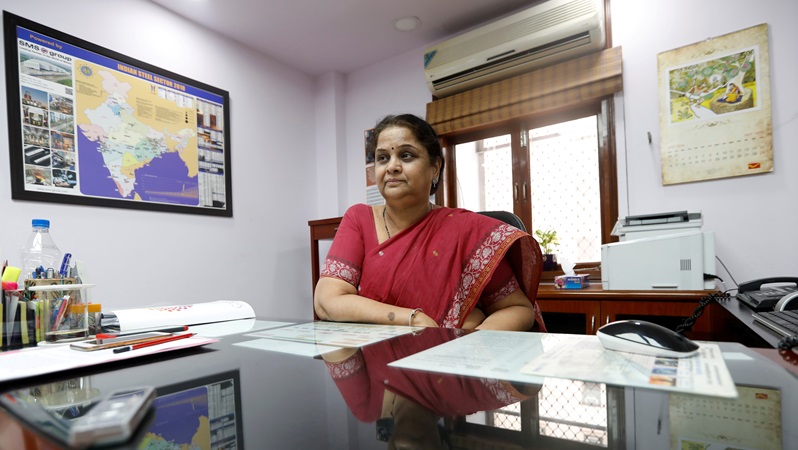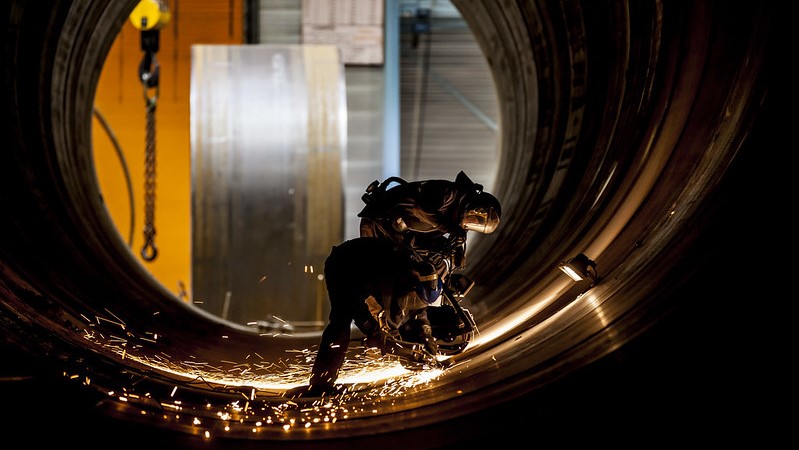The BASIC group led by China wants “unilateral restrictive trade measures” on the COP29 agenda
A group of emerging economies chaired by China has proposed that what they regard as protectionism by developed countries should be discussed formally at the COP29 climate summit, setting up an “agenda fight” that could disrupt the talks.
The BASIC group of nations – Brazil, South Africa, India and China – has put forward an agenda item for COP29 in Baku, seen by Climate Home, that addresses “concerns with climate-change related unilateral restrictive trade measures”.
The submission to the UN says these trade measures “under the guise of climate objectives represent a systemic concern with disproportionate effects on developing [countries]”.
“Such measures increase the cost of worldwide climate action, hinder the efforts of developing countries to advance their climate commitments and ambition, undermine the basis of multilateral cooperation and contradict” UN climate agreements, the text adds.
Sign up to get our weekly newsletter straight to your inbox, plus breaking news, investigations and extra bulletins from key events
Aaron Cosbey, a trade expert with the International Institute for Sustainable Development (IISD), told a recent webinar that BASIC’s proposal was “explosive”, adding “the potential for these issues to derail progress at that COP is very real.”
EU carbon border levy
The BASIC proposal is likely to be fiercely resisted by the European Union (EU) and the United States. Although the submission does not mention specific policies, BASIC has criticised the EU’s plan for a carbon border adjustment mechanism (CBAM) – essentially a carbon tax on imports – as well as certain provisions contained in the US Inflation Reduction Act (IRA).
The COP29 president, Azerbaijan’s Mukhtar Babayev, and the head of the UN climate body, Simon Stiell, are tasked with drawing up a draft agenda for the UN summit from a list of submissions, after consulting with governments. At the start of COP29, all governments will review the suggested items and agree what makes it on to the final agenda. Arguments could delay the start of talks.
Legal experts say Trump could quit Paris pact – but leaving UNFCCC much harder
Cosbey said the EU and others are “never going to agree” to the agenda item on trade, because its language is “prejudicial” and the issues it raises are already included under a track of the UN climate talks known as “response measures”.
“They will argue: ‘we don’t want to discuss this as a general agenda item – we want to put it in this box over here where we’ve been discussing it all these years’,” Cosbey added, noting it “may sound like a minor thing” but previous negotiations have been hung up for days over such “agenda fights”.
The BASIC countries have long opposed the CBAM – and they made a similar agenda proposal ahead of COP28. But, led by the group’s then chair Brazil, they backed down and accepted it being left off the agenda.
Cosbey said the question of whether it delays the adoption of the COP agenda this time around depends on whether BASIC countries are “serious” about wanting a formal discussion or are “putting it forward strategically” to draw attention to the issue and extract some concessions in return for dropping it.
The EU’s CBAM is a levy on certain carbon-intensive and heavily traded products imported into the bloc from countries that do not have a price on carbon. It was approved by the EU in 2021 and will come into force in 2026.
Its supporters argue it is necessary to avoid carbon leakage, whereby producers of energy-intensive products like steel, cement and aluminum move their operations out of the EU to countries with weaker environmental regulations.
But in a communique issued after their leaders met in Russia in late October, BASIC described the CBAM as a “unilateral, punitive and discriminatory protectionist” measure.
Aruna Sharma, a former secretary at the Indian steel ministry, told the same webinar the EU wants other countries to follow the pace of its emissions-cutting goals without consulting them properly. Measuring emissions of products in order to comply with the CBAM will be expensive, she added.

India’s then Steel Secretary Aruna Sharma speaks during an interview with Reuters in New Delhi, India, July 30, 2018. REUTERS/Adnan Abidi
Costs of compliance
Chantal Line Carpentier, head of the New York office of the United Nations Conference on Trade and Development (UNCTAD), said many developing countries spend more on servicing their debt than on social welfare. “So how are these people supposed to be able to invest…in their [carbon] monitoring and ver
Read More

